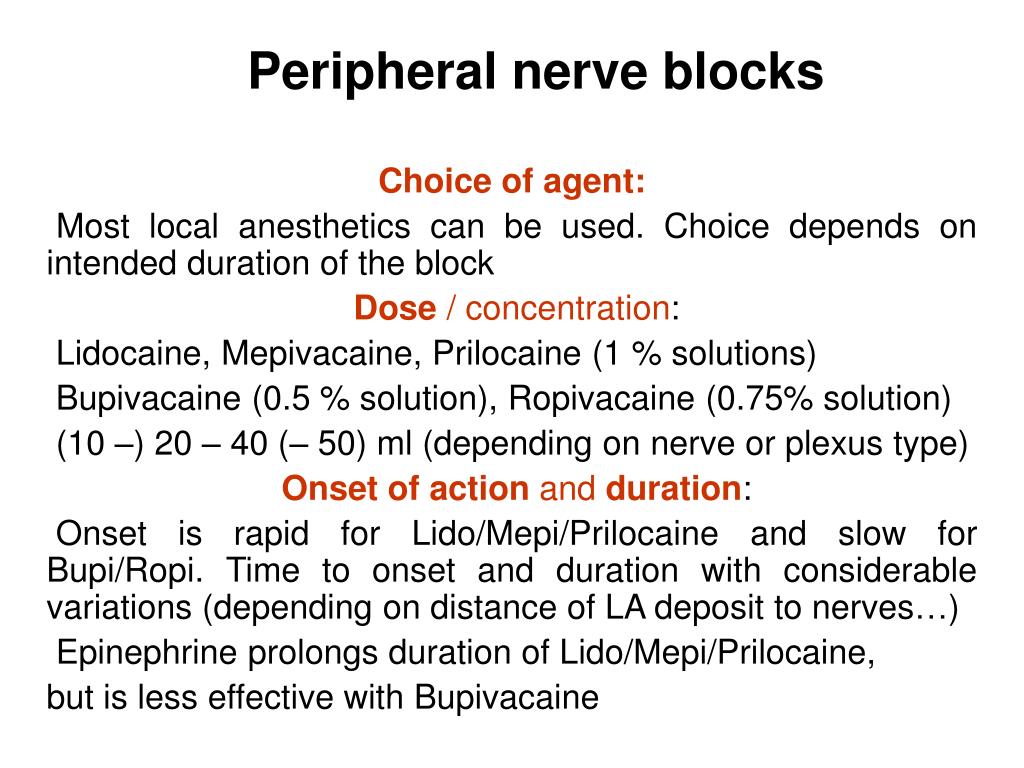

The CPT code set for nerve blocks is 64400-64530 Peripheral nerve blocks-bolus injection or continuous infusion: Peripheral Nerve Block 64405 CPT Code Description and Related Codes

Peripheral nerve blocks (continuous or single-injection) for the treatment of acute pain, and for chronic pain only as part of an active component of a comprehensive pain management program.For instance, Aetna considers the following PNBs medically necessary: Knowing payer rules is important to submit accurate claims for optimal reimbursement. It is the clinician’s responsibility to determine the medical necessity and proper site of service for the procedure, and to submit appropriate codes, charges and modifiers for services rendered. For chronic pain, PNBs can be used only as part of an active component of a comprehensive pain management program. PNBs for acute pain can be administered in two ways: as a single shot injection and via continuous catheters. Nerve blocks are injected near the nerves using ultrasound.

To facilitate proper examination, intervention or mobilization of an injured area without the need for sedation or general analgesia.To provide prompt and effective analgesia, either as a local anaesthetic prior to suturing or following injury (such as femoral nerve block for a broken leg).Indications for therapeutic PNBs include:.When used diagnostically, a PNB allows the clinician to insulate the specific cause of pain in an individual patient.PNBs can be used for both diagnostic and therapeutic purposes. Partnering with a pain management medical billing and coding company that understands this area and is familiar with the latest CPT codes and their relative value is critical to decrease claim denials and maximize reimbursement. With the advancement of techniques, billing and coding for nerve blocks can be challenging. PNBs for the treatment of chronic pain post-herniorrhaphy can help avoid more aggressive treatments (e.g., surgery). Peripheral nerve blocks (PNBs) are a safe alternative to opioids for acute pain management and help anesthesiologists to provide safe and effective patient care. Peripheral nerves cause pain in various conditions, such as post-herniorrhaphy pain, iliac crest harvest syndromes, carpal tunnel syndrome, Morton’s neuroma, facial pain and headaches.


 0 kommentar(er)
0 kommentar(er)
